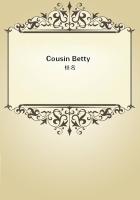I wanted more. I looked from face to face surrounding me, and in most of them I found reflected undoubtedly my own sensations. If it be a good thing to excite this blood thirst in the modern man, then the Mensur is a useful institution. But is it a good thing?
We prate about our civilisation and humanity, but those of us who do not carry hypocrisy to the length of self-deception know that underneath our starched shirts there lurks the savage, with all his savage instincts untouched. Occasionally he may be wanted, but we never need fear his dying out. On the other hand, it seems unwise to over-nourish him.
In favour of the duel, seriously considered, there are many points to be urged. But the Mensur serves no good purpose whatever. It is childishness, and the fact of its being a cruel and brutal game makes it none the less childish. Wounds have no intrinsic value of their own; it is the cause that dignifies them, not their size.
William Tell is rightly one of the heroes of the world; but what should we think of the members of a club of fathers, formed with the object of meeting twice a week to shoot apples from their sons' heads with cross-bows? These young German gentlemen could obtain all the results of which they are so proud by teasing a wild cat!
To join a society for the mere purpose of getting yourself hacked about reduces a man to the intellectual level of a dancing Dervish.
Travellers tell us of savages in Central Africa who express their feelings on festive occasions by jumping about and slashing themselves. But there is no need for Europe to imitate them. The Mensur is, in fact, the reductio ad absurdum of the duel; and if the Germans themselves cannot see that it is funny, one can only regret their lack of humour.
But though one may be unable to agree with the public opinion that supports and commands the Mensur, it at least is possible to understand. The University code that, if it does not encourage it, at least condones drunkenness, is more difficult to treat argumentatively. All German students do not get drunk; in fact, the majority are sober, if not industrious. But the minority, whose claim to be representative is freely admitted, are only saved from perpetual inebriety by ability, acquired at some cost, to swill half the day and all the night, while retaining to some extent their five senses. It does not affect all alike, but it is common in any University town to see a young man not yet twenty with the figure of a Falstaff and the complexion of a Rubens Bacchus. That the German maiden can be fascinated with a face, cut and gashed till it suggests having been made out of odd materials that never could have fitted, is a proved fact. But surely there can be no attraction about a blotched and bloated skin and a "bay window" thrown out to an extent threatening to overbalance the whole structure. Yet what else can be expected, when the youngster starts his beer-drinking with a "Fruhschoppen" at 10 a.m., and closes it with a "Kneipe" at four in the morning?
The Kneipe is what we should call a stag party, and can be very harmless or very rowdy, according to its composition. One man invites his fellow-students, a dozen or a hundred, to a cafe, and provides them with as much beer and as many cheap cigars as their own sense of health and comfort may dictate, or the host may be the Korps itself. Here, as everywhere, you observe the German sense of discipline and order. As each new comer enters all those sitting round the table rise, and with heels close together salute. When the table is complete, a chairman is chosen, whose duty it is to give out the number of the songs. Printed books of these songs, one to each two men, lie round the table. The chairman gives out number twenty-nine. "First verse," he cries, and away all go, each two men holding a book between them exactly as two people might hold a hymn-book in church. There is a pause at the end of each verse until the chairman starts the company on the next. As every German is a trained singer, and as most of them have fair voices, the general effect is striking.
Although the manner may be suggestive of the singing of hymns in church, the words of the songs are occasionally such as to correct this impression. But whether it be a patriotic song, a sentimental ballad, or a ditty of a nature that would shock the average young Englishman, all are sung through with stern earnestness, without a laugh, without a false note. At the end, the chairman calls "Prosit!" Everyone answers "Prosit!" and the next moment every glass is empty. The pianist rises and bows, and is bowed to in return; and then the Fraulein enters to refill the glasses.
Between the songs, toasts are proposed and responded to; but there is little cheering, and less laughter. Smiles and grave nods of approval are considered as more seeming among German students.
A particular toast, called a Salamander, accorded to some guest as a special distinction, is drunk with exceptional solemnity.
"We will now," says the chairman, "a Salamander rub" ("Einen Salamander reiben"). We all rise, and stand like a regiment at attention.
"Is the stuff prepared?" ("Sind die stoffe parat?") demands the chairman.
"Sunt," we answer, with one voice.
"Ad exercitium Salamandri," says the chairman, and we are ready.
"Eins!" We rub our glasses with a circular motion on the table.
"Zwei!" Again the glasses growl; also at "Drei!"
"Drink!" ("Bibite!")
And with mechanical unison every glass is emptied and held on high.
"Eins!" says the chairman. The foot of every empty glass twirls upon the table, producing a sound as of the dragging back of a stony beach by a receding wave.
"Zwei!" The roll swells and sinks again.
"Drei!" The glasses strike the table with a single crash, and we are in our seats again.















